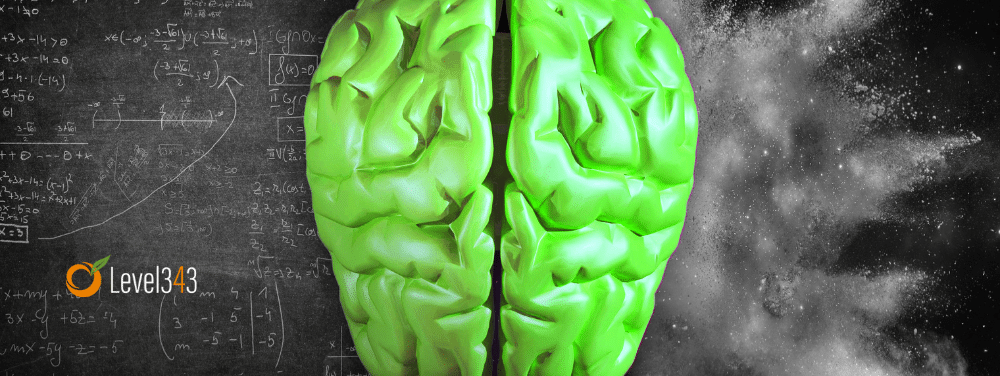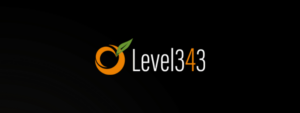“Big deal,” you say? Ah… read on, oh lucky visitor!
Humanity’s Mass Mind
All the world’s a stage, And all the men and women merely players…
William Shakespeare
Consider how much knowledge is now at your fingertips! Marketing data, medical studies, scientific papers, blue prints: anything you want to know, anything you want to learn, can be found on the Web. Not only that, but the Internet has become a collection of peoples’ thoughts, opinions, studies and experience on any given subject. So much so, that it’s become a mass mind – a living, feeling, learning creation.
We all play a part…
The fascinating thing is that each of us plays a part in helping this creation grow. By writing and posting new content, we add to the collection our own thoughts, experience and knowledge. Even if the topic is the same, with few exceptions, each person’s content is unique, because our views on our personal experiences.
How amazing! How wonderful! How fantastic! With prolific online authors, you can search their names, and learn all about them. It’s almost like reading their minds – it’s all there for us to digest.
Collected Information Leads to Collective Intelligence
All this information pouring into the online collection has begun to serve a greater purpose than one individual learning new things. This collected information, humanity’s mass mind, is leading to new forms of Collective Intelligence (CI). In turn, Collective Intelligence is leading to mankind’s continued growth as a species – to learning new things that no one has ever known before!
What is collective intelligence?
The MIT Center for Collective Intelligence describes CI as “groups of individuals doing things collectively that seem intelligent.” (emphasis ours)
Crowd-sourcing, collaboration, and the wisdom of crowds are all minimalist forms of collective intelligence. It’s seen in nature, in the hive mind of bees or in the way ants colonies work as a unified entity. The key word in the MIT definition is seem. For any collaboration to be a true example of collective intelligence, it has to lead to new levels of intelligence. In other words, something more than what was before.
Why are we bothering to discuss this?
That’s a darn good question. We have a darn good answer.
Collected information and collective intelligence are changing the way we live, act, react and interact. It matters for SEO, because optimizers need to learn how to capitalize on it. It matters for marketing, because social is a big part of collective; your target market’s wants, needs, thoughts and opinions are right there for you to gather, in big, bright, bold words. It matters for business because of all of the above and then some.
Look at the applications we’re building! We’re creating our home security systems online. We’re pulling an entire company’s data stream into one central location in the cloud. We’re gathering information from around the world in a matter of a few seconds.
The world is growing in leaps and bounds – the way we interact with computers and people (social, blogging, search, surveys, comments, programs, applications, research and development, marketing, etc.) has changed in such a way that we’re ALL a part of that growth.
5 Real World Examples of Collective Intelligence
Everything you put out there, everything thought, opinion or bit of knowledge, is a contribution towards the future of mankind. You never know what will spark of the next round of innovations and ideas.
Listen – do you really think the people behind every successful business, every great piece of technology and every standard scientific process knew their ideas would be successful, great or become a standard? How many of these things started with just a spark? It might not have even been the “inventor’s” own thought – it could have just as easily started with someone else’s comment…
The thousands of real world collective intelligence examples should be taken as inspiration. They are just the beginning of what’s possible. We’ve barely started, yet there are literally thousands of real world examples of collective intelligence in use:
Google is an oft-used example, yet it’s important to specify the search engine itself, not the search engine’s output:
Google’s Output – The feedback that comes from any given query is subject to misinformation. Anyone can write about anything… and we do. Therefore, it’s important to point out that mass authoring isn’t synonymous with mass authority. Just because many people write about something doesn’t mean we learn from that writing.
Google- If you’ve ever seen the list of patents that went into creating Google, you’d quickly notice that the patents don’t always have the same creator’s name. You’ll see names like Mayur Datar and Ramanathan V. Guha, but you’ll also see Alexis Battle, Barbara Engelhardt and so on. Not all patents were created by Google employees for Google, and most patents were created by a team of inventors. What we end up with, then, is a search engine designed, built and added on to by hundreds of people. Unique in its overall abilities, it was the only one of its kind when first created: intelligent design developed through collective intelligence.
Google +
From the time that Google Plus hit the online world, it’s been an example of collective intelligence. They opened a bare bones project, not to the masses, but to a specific audience – the geeks and coding freaks of the Internet. They gave these individuals the ability to give automatic feedback on all areas of the system.
Why? In order to turn out a strong, working product when it’s released for everyone to use. The company wants the best social platform out there, and who better to finish the creation process than the very people they’re targeting?
Open Source Projects
Anything “open source” can be considered a strong example of collective intelligence. Open source projects are developed by the people for the people; open source is a completely organic approach, if you will. In fact, some amazing products have come out of the Open Source Initiative. The list includes several well-known products, such as:
- The Apache server
- WordPress
- Drupal
- MySQL
- Mozilla Firefox
- Many, many more
BRAIN
BRAIN, Behaviorally Robust Aggregation of Information in Networks, created by Hewlett Packard, is a fascinating example of collective intelligence. According to the creators, “Existing processes tend to be either too data-driven, and therefore lacking the perspective of human insight, or too ad hoc, and therefore inconsistent with the data. “
BRAIN was developed to gain more accurate information for prediction markets using data side-by-side with team surveys. It’s worked for HP, and other companies, such as IBM and Ford, have implemented prediction markets as well.
KuiSchi
Knowledge Unifying Initiator for Science and Technology, or KuiSci, is “a meeting place for discussion among scientists and technologists, a place for presenting national and global scale problems, a forum for brainstorming, skill and expertise exchange among scientists to harness the collective solutions. KuiSci is a place for innovative work creation. “
On to Bigger and Different Things
We’re in a technological space we’ve never been in before – not in the entire history of mankind. We’re able to collaborate globally in ways that have previously not been possible. Open source projects are changing medicine; social networking is changing how we learn in a classroom. –And, the power of the collective is changing how we do business.
That’s not so bad; change is the beginning of growth. Although no one knows how things will turn out in the future, we do know that it will probably be something totally unexpected – something different. Something no one has thought of before. As content developers, marketing managers, application developers, search engineers, SEO geeks and so on, it’s our responsibility to make sure we follow a mantra of respect, honesty and communication. Maybe “Respect, honesty and communication for the betterment of mankind” should be part of the 10 Online Commandments (wonder how well that would go over?).
Over the next several weeks, months and so on, we’ll be talking more about Collective Intelligence and how it applies specifically to marketing your online business, branding, users’ opinions, etc. In the meantime, put your thinking caps on; if you have any questions or comments, you know where to put them (in the comment box, people…)!




































16 Responses
Great read! Concepts of collective intelligence and collective consciousness are fascinating – and fascinating to look at through the lens of our modern hyper-connected world.
Pierre Teilhard de Chardin’s incredible book The Phenomenon of Man might be right up your alley. Teilhard, an evolutionary biologist and Jesuit priest, wrote it back in the ’50s. In it, he traces the collective-consciousness directionality of evolution, and posits that it’s leading to a hyper-personal point of unity, where humanity will become so connected within itself so as to birth a new divine collective-consciousness.
Mind-bending read – especially when reading it with the internet as it exists today at our fingertips…
Thanks for the great read 🙂
Hello Daniel, you’re the second person to mention The Phenomenon of Man. To sum his philosophy, Teilhard describes humankind as evolution becoming conscious of itself.” It’s time I grab a copy…thanks for your input!
I’m glad to find your post about collective intelligence, Gabriella!
Recently I started the initiative to build non-profit collective intelligence engine, there is a prototype already. I ask you to take a brief look at it and concepts behind – http://tryne.org
Please, contact me back with your opinion.
Thanks Max, I will… 🙂
Hi
Collective intelligence is the good factor to get the knowledge. I am happy to read this post.
thanks,
Completely true, even if the topic is the same, with few exceptions, each person’s content is unique. As a reader on some topics, I’ve read dozens and I kept on reading because each post had something new to offer and that was the view of the writers.
you have it backwards …. the internet exists because consciousness is “one thing”, technology outpictures the mind
Interesting, perspective greg… however I’m not sure I agree with your “one sentence” besides this post was geared towards a collective intelligence and how we can participate in sharing information with the masses by leaving insightful and intelligent information for future generations.
The most amazing thing about crowd sourcing is that it really works – I’ve seen it work first hand and it never fails to amaze. Social media, online forums and pervasive online communications thanks to smartphones have made all of us members of a global hivemind, and it rocks!
Kids growing up today will look back and wonder with amazement at how people ever lived in a pre-Internet world, kind of how we look back at the generations who lived before electricity.
I do think that social media is an interesting case study when it comes to the collective mind, never more so when you see “twitter hate mobs” erupt against a public person who has said something unpleasant!
Absolutely, Richard – It’s interesting, to say the least, to watch the “mob mentality” transfer to social networks. I think the computer/internet acts as an extra layer of comfort for people. With some exceptions, it seems to make a difference in how much we sensor ourselves.
Thanks for the comment!
Impressive concept. I’m curious about how to explain this to clients, friends, family etc who are desensitized by the mind-numbing PowerPoint culture here in corp america so to speak. Are there user engagement friendly “data visualization” style graphs available? Such as those pioneered by Professor Tufte, statistics professor at Yale?
Hello Mark, I’ve found some great value after I read Collective Knowledge Systems: Where the Social Web meets the Semantic Web* By Tom Gruber. You can find more about him at TomGruber.org or look for his .pdf download. He has a few figures discussing collective knowledge system and the like. Another I would suggest is MIT they published MIT_CollectiveIntelligence2009.pdf I’m sure you can search both and download easily. Enjoy & let me know your thoughts!
I LOVE this post. The question is where to start in terms of commenting on it ? Several starting points come to mind:
1) Analogies between neuron AND person, between trans-synaptic signals AND tweets between people, between myelination AND retweets/twitter-impressions.
2) The idea that we each are already “collective intelligences” that only seem like a single personality to outside observers. So, perhaps “collective intelligence” is just an evolutionary step.
3) Decision-making mathematics and idea that decisions made by groups tend to be only as good as a decision made by the least intelligent person in the group.
4) Could a “collective intelligence” pass the Turing test ? And if it couldn’t, would we have to drop the word “intelligence” ?
5) Ray Kurzweil’s books and the idea that our collective intelligence will evolve into a “singularity”….
Now I’m going to get back to helping my clients make money 🙂
(Don’t tell them that we had this conversation …)
I’m pretty sure I just fell in love with you. No pressure. We can take it slow.
Ha ha – me you too. And, oh yeah, there is 6) Open Source as collective intelligence, 7) Crowdsourcing … Crap. Got sucked in again…